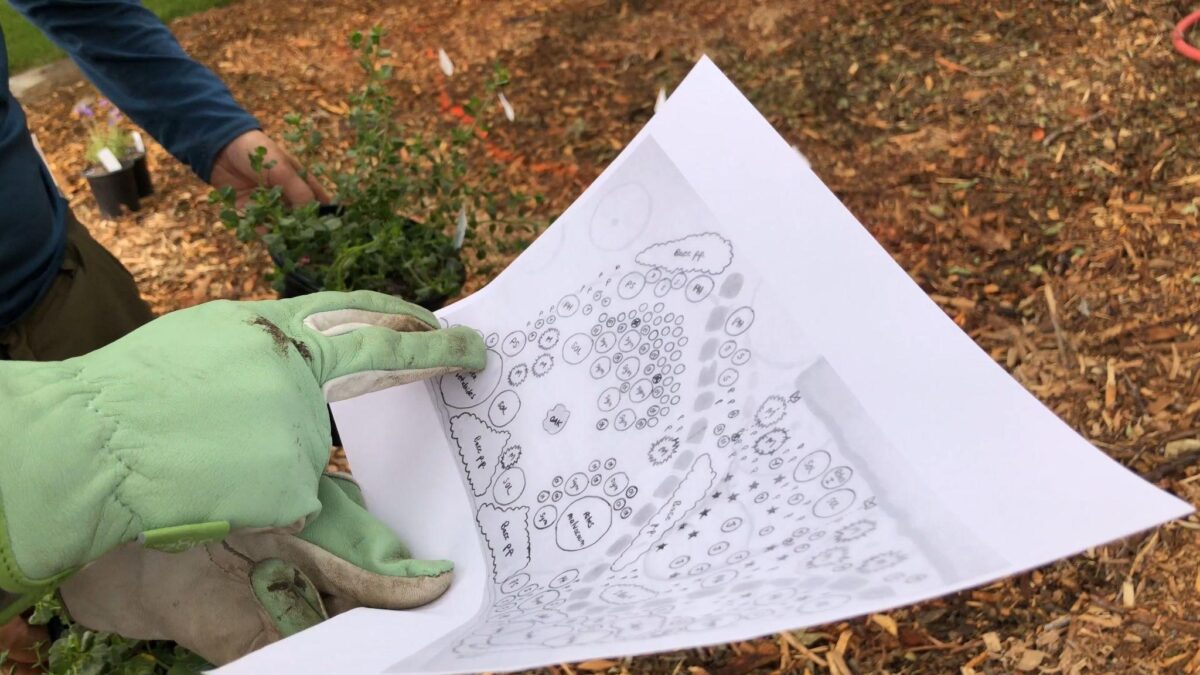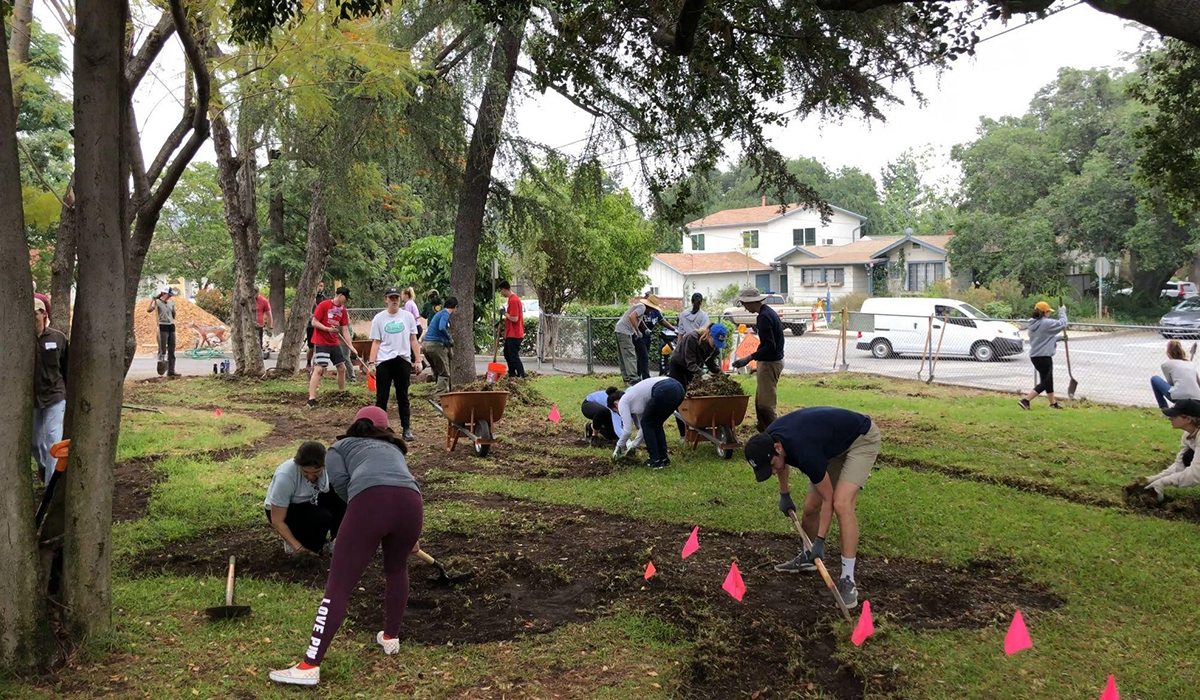Pando Professor: Alison Lipman, UCLA
Alison Lipman, Lecturer in the Department of Ecology & Evolutionary Biology at University of California, Los Angeles (UCLA), has been the instructor for a half dozen or so Pando-themed courses and helped implement a number of related projects.
Read on to learn about what she’s teaching and doing that matters to her, to Pando, to Los Angeles, and to the world.
What we found is predictably astonishing, and inspiring.
Welcome.
Why do we import water hundreds of miles and waste the rain that falls from the sky?
Alison Lipman, professor of ecology at UCLA for the past nine years, has a lot more questions for her students where that one came from.
“Why are we growing lawns—when there are more sensible options?
“It doesn’t rain much in LA, but when it does, it rains a lot. So why can’t we use rainwater, instead of letting it go from roofs to streets to pick up pollutants that get into streams—and then our ocean?”
How do you involve students in devising those sensible options?
Alison teaches Pando-themed courses. She explains this to them, and asks the killer question: “What can we do to change this?”
Her ecology students proposed rain gardens. “Rain gardens are ponds that are dry most of the time. They divert roof or street water into pools that slowly return the water to the soil and regenerate our aquifers.
“These rain gardens are designed to collect and hold the rain as it falls. Students designed them and selected the native plants that would go in them. “Then, we got a grant to actually install a rain garden of about 1,500 square feet to capture roof water.”

How does her process work?
She aimed for collaborative action in a community space, digging in at the Pando at Maryknoll campus. in Monrovia.
“Students came, worked with designers, put in irrigation, and planted the plants. They actually built it. The rain garden is lovely, the rainwater gets used, the students learn what is possible, and it’s a demonstration garden for the public. We also brought in a cistern we’ve hoped to see installed.
“Next step in planning called for us to install signage to educate more students as well as the public.
How did you come to work with Pando?
“I like teaching theory, but what I really love is teaching practical courses which basically means groups of students actually in a direct class project working with an actual client—like Pando—with actual goals.
“Sustainable landscaping is one goal. Getting grass converted to sustainable landscaping is another connected goal. Capturing rainwater to fill our cisterns and using that water for a lot of things is another.
“These are good examples of real work on real projects with real impacts. Better yet, I love it when I have students who decide to go into conservation, who see the importance of ecology and conservation as a result of the classes and projects here.
“I hope that my coursework and collaborations with Pando can help whet their appetites. It’s all a work in progress, but it’s been successful, and the on-the-ground work we do demonstrates what can be done right here in LA.”
This is one of a continuing series of conversations with Southern California professors teaching Pando-themed courses.
